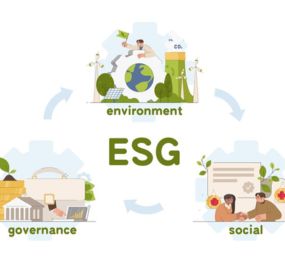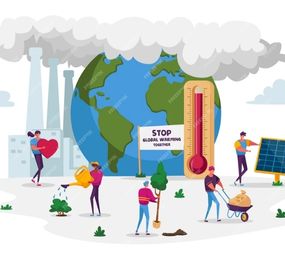Climate change poses significant risks to small businesses, from extreme weather events to disruptions in supply chains. As the global climate continues to change, small businesses need to adopt adaptation strategies that will help them not only survive but also thrive in a rapidly shifting environment.
One of the most effective ways small businesses can adapt to climate change is by conducting a climate risk assessment. This process helps identify potential vulnerabilities, such as exposure to flooding, heatwaves, or supply chain disruptions. Once risks are identified, businesses can implement measures to mitigate them, such as improving infrastructure resilience, diversifying suppliers, or investing in renewable energy solutions.
Incorporating sustainable practices into daily operations is another key strategy for climate adaptation. Businesses can reduce their environmental impact by minimizing waste, using energy-efficient technologies, and lowering their carbon footprint. Additionally, adopting renewable energy sources like solar or wind power can help small businesses reduce reliance on fossil fuels while contributing to long-term sustainability goals.
Engaging in local and regional climate initiatives can also benefit small businesses. By collaborating with local governments, industry groups, and other businesses, small enterprises can access resources, knowledge, and support systems that help them adapt to climate challenges. This collaborative approach fosters community resilience and strengthens ties between businesses and stakeholders.
Investing in climate-smart technologies is another way for small businesses to stay ahead of climate-related disruptions. Innovations in water management, energy efficiency, and data analytics can help businesses track and manage their environmental impact more effectively, ensuring long-term business continuity.
Lastly, fostering a culture of flexibility and preparedness is essential for climate adaptation. By creating contingency plans, training employees on climate risks, and maintaining open communication with suppliers and customers, small businesses can better navigate environmental challenges.
By implementing these adaptation strategies, small businesses can build resilience, reduce risks, and ensure their sustainability in an era of climate uncertainty. Embracing these changes not only safeguards business operations but also contributes to the broader goal of environmental responsibility.
For more information and registration details, visit the official website: https://www.leadventgrp.com/events/2nd-annual-world-esg-and-climate-summit/details
For more information and group participation, contact us: [email protected]
















